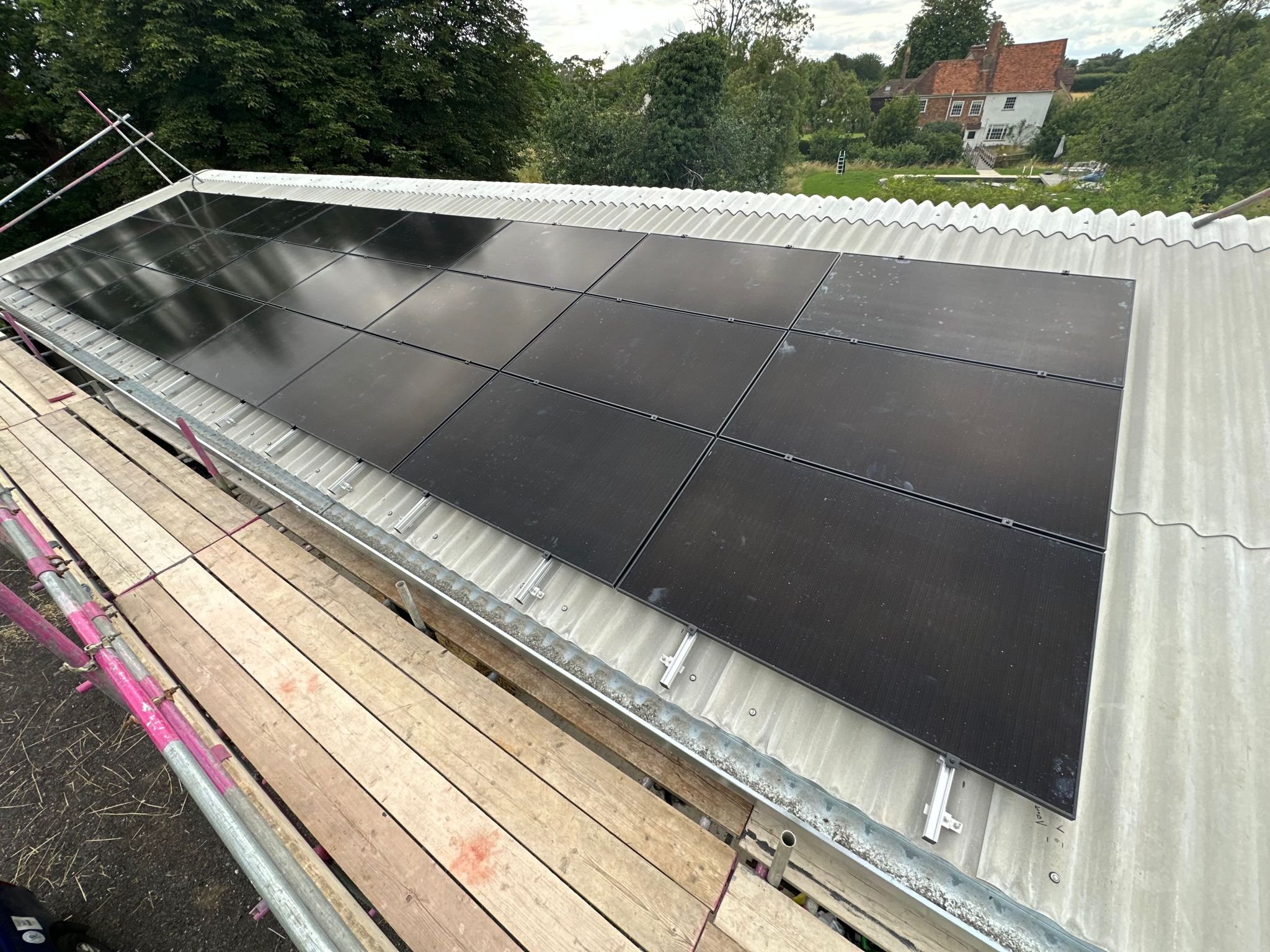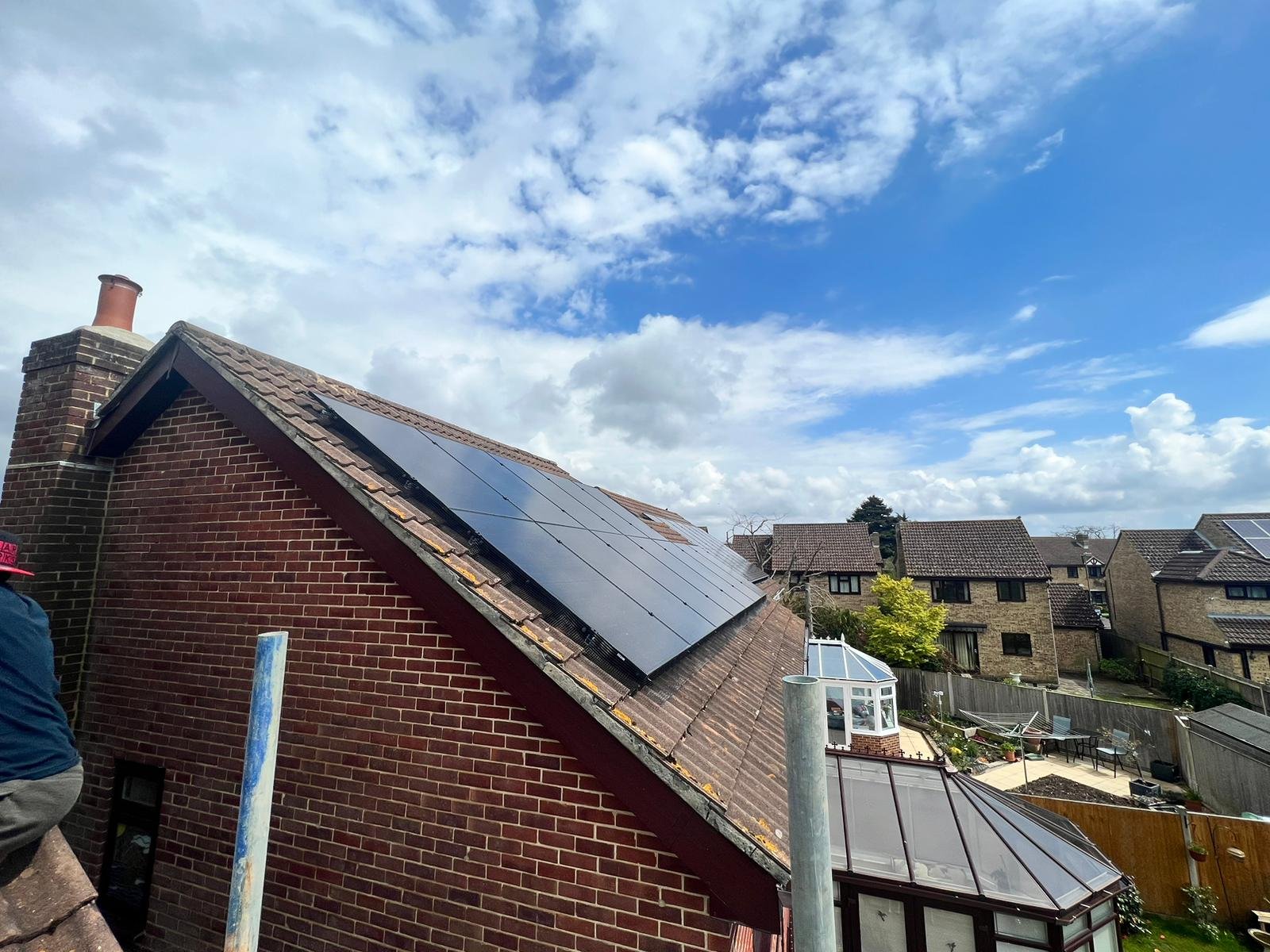Can You Install Solar Panels Yourself?
Is DIY Solar Panel Installation Legal? (And More Answered.)
What’s on this page?
Is DIY Solar Panel Installation Legal in the UK?
Can Your Neighbors Object to Your Solar Panels?
When Do You Need Planning Permission for Solar Panels?
What Are the Building Regulations for Solar Panels if I Install Them Myself?
Can You Install Solar Panels Yourself on a Listed Building?
and more
Is DIY Solar Panel Installation Legal in the UK?
In the face of rising energy costs, many UK residents are considering the self-reliant option of solar power. But can you legally install solar panels yourself?
Yes, you can install solar panels yourself or independently. However, there are key things to remember. Without MCS accreditation, selling extra energy and insurance could be impacted. Also, you need to follow planning rules even if you're a DIY installer.
Understanding Solar Panels
How Do Solar Panels Work?
Solar panels work by harnessing the power of sunlight and converting it into electricity through a process known as the photovoltaic effect. At the heart of this process are photovoltaic (PV) cells, typically made from silicon. When sunlight hits these cells, it excites the electrons in the semiconducting material, causing them to flow and generate direct current (DC) electricity.
However, most homes and businesses use alternating current (AC) electricity. This is where an inverter comes into play. The inverter converts the DC electricity produced by the solar panels into AC electricity, making it compatible with your household appliances and the grid.
This clean and renewable energy source not only reduces our dependence on fossil fuels but also helps lower greenhouse gas emissions. Whether you’re powering small devices or an entire home, understanding how solar panels work can help you make informed decisions about adopting this sustainable technology.
Can Your Neighbors Object to Your Solar Panels?
When it comes to your neighbors' opinion of your solar panels, understanding the local regulations and involving your neighbors in your plans can make a significant difference.
If your installation aligns with 'permitted development' or you've obtained necessary planning permission, your neighbors' objections are unlikely to impact your project.
However, maintaining good communication and transparency with your neighbours is always advisable.
When Do You Need Planning Permission for Solar Panels?
Typically, you won't need planning permission for solar panels, thanks to 'permitted development' rules. These rules include criteria such as specific placement, visual impact, and prompt removal if necessary.
However, when your property is in a conservation area, or within the boundaries of a World Heritage Site, specific regulations apply. In cases of doubt, it's recommended to consult your local planning department for guidance.
What Are the Building Regulations for Solar Panels if I Install Them Myself?
Solar panels must meet specific building regulations, including ensuring the roof’s structural integrity, and compliance with electrical installation requirements. These regulations are a standard part of the MCS survey and installation process, and additional work may be needed for your property before installing solar panels.
The number of solar panels can also influence the structural integrity and compliance with building regulations, as more panels may require additional support and adherence to specific guidelines.
To prevent the necessity of obtaining planning permission, the solar panels should adhere to the following conditions:
They should be positioned below the property’s highest point, excluding chimneys.
The installation should be done in a manner that minimizes its impact on both the property’s external appearance and the surrounding environment.
The panels should not extend more than 200mm from the surface of your roof.
To prevent the necessity of obtaining planning permission, the solar panels should adhere to the following conditions:
They should be positioned below the property's highest point, excluding chimneys.
The installation should be done in a manner that minimizes its impact on both the property's external appearance and the surrounding environment.
The panels should not extend more than 200mm from the surface of your roof.
Can You Install Solar Panels Yourself on a Listed Building?
If you’re dealing with a delicate project like a listed building, we would recommend hiring professionals. DIY installation on a historical building will also need planning permission, unlike a regular home solar installation.
Listed buildings, protected for their historical or cultural importance, require listed building consent before installing solar panels. This is distinct from regular planning permission and must be obtained in addition to it.
Can You Move Solar Panels to a New Home?
Yes, you can relocate solar panels when you move, but there are practical and financial considerations to weigh. Solar systems are designed for specific locations, and moving them can be costly and potentially void your warranty. Also, solar panels often enhance the appeal of a property to potential buyers, so removing them may not be advisable. Residential solar panels are highly efficient in covering electricity demands and can lead to significant cost savings over time, making them a valuable investment for homeowners.
What Is Article 4 in UK Planning Regulations?
Article 4 is a part of the Town and Country Planning (General Permitted Development) (England) Order 2015. It allows local authorities to restrict or withdraw certain permitted development rights in their areas, often used to control development in sensitive or conservation areas. Specific details of Article 4 can vary between local authorities, so it's essential to consult with them or seek legal advice when dealing with specific cases.
Solar Panel Installation Options
Can I Install Solar Panels on a Flat Roof or in My Garden?
Absolutely, solar panels can be installed on flat roofs or even in your garden, offering flexibility in how you harness solar power. For flat roofs, a ballasted system is often used. This method involves securing the panels with weights rather than penetrating the roof, ensuring a watertight and stable installation. However, it’s crucial to verify that your roof can support the additional weight of the solar panels.
If you have ample garden space, ground-mounted solar panels are another excellent option. These panels can be installed on freestanding frames, allowing you to optimize their orientation and angle for maximum sunlight exposure. Just ensure that the panels are not shaded by trees or buildings and are positioned to face south as much as possible to maximize energy production.
Both options offer unique benefits and can be tailored to suit your specific needs, making solar panel installation a versatile solution for generating renewable energy.
Solar Panel Costs and Savings
What Are the Solar Panels Cost and Savings?
The cost of installing a solar panel system can vary widely, typically ranging from £5,000 to £10,000 for a residential setup. This cost depends on factors such as the type and quality of the panels, the size of the system, and the installation company you choose. While the initial investment might seem substantial, the long-term savings on electricity bills can be significant.
On average, a well-installed solar panel system can save homeowners up to £600 per year on their electricity bills. Additionally, the Smart Export Guarantee (SEG) scheme allows you to sell excess energy back to the grid, providing an additional income stream. This not only helps offset the initial installation costs but also contributes to a quicker return on investment.
Moreover, the cost of solar panels has been decreasing over time, making them more accessible to homeowners. The UK government also offers various incentives, such as the SEG scheme and the Renewable Heat Incentive (RHI), to encourage the adoption of renewable energy sources like solar power. By investing in solar panels, you can reduce your energy bills, contribute to environmental sustainability, and potentially increase the value of your property.
More Frequently asked questions:
1. Does Self-Installing Solar Panels Impact Property Value in the UK?
Yes, self-installed solar panels can affect the market value of your property in the UK, often in a positive way. Solar panels are seen as an attractive feature by many potential buyers and can make your property more energy-efficient, potentially increasing its resale value. However, if you’ve installed them yourself, you may have problems with convincing a buyer that your panels are safe and well installed.
2. What Aesthetic Factors Should You Consider for DIY Solar Panels in the UK?
When adding DIY solar panels to your UK home, it's crucial to consider their aesthetic impact. Ensure that the panels are installed neatly and in a way that complements your property's appearance. They should be positioned to minimize their visual impact, and you should aim to preserve the overall attractiveness of your home and the surrounding area.
3. Are There UK-Specific Financial Incentives or Government Schemes for Self-Installed Solar Panels?
In the UK, there are financial incentives and government schemes that can support self-installation of solar panels. The Smart Export Guarantee (SEG) allows you to sell excess energy back to the grid, providing a financial incentive for solar panel owners. Additionally, homeowners installing solar PV panels can benefit from grants and VAT reductions, encouraging the transition to renewable energy through related schemes.
4. How Can You Ensure the Safety and Structural Integrity of Your UK Roof with DIY Solar Panels?
Safety and the structural integrity of your roof are paramount when installing solar panels in the UK. To ensure safety, consider hiring a professional or consulting with a structural engineer. They can assess the strength of your roof and make any necessary reinforcements to support the added weight of the panels. Proper installation and compliance with safety standards are essential for the long-term durability of your solar panel system. Additionally, utilizing excess solar energy to power immersion heaters in hot water tanks through PV diverters can help reduce energy bills, even if it doesn't completely satisfy hot water needs.
Contact us to arrange a free, no obligation quotation
from our friendly team. We'll get back to you within one working day.
See Our Solar and Battery Installation Services in Action
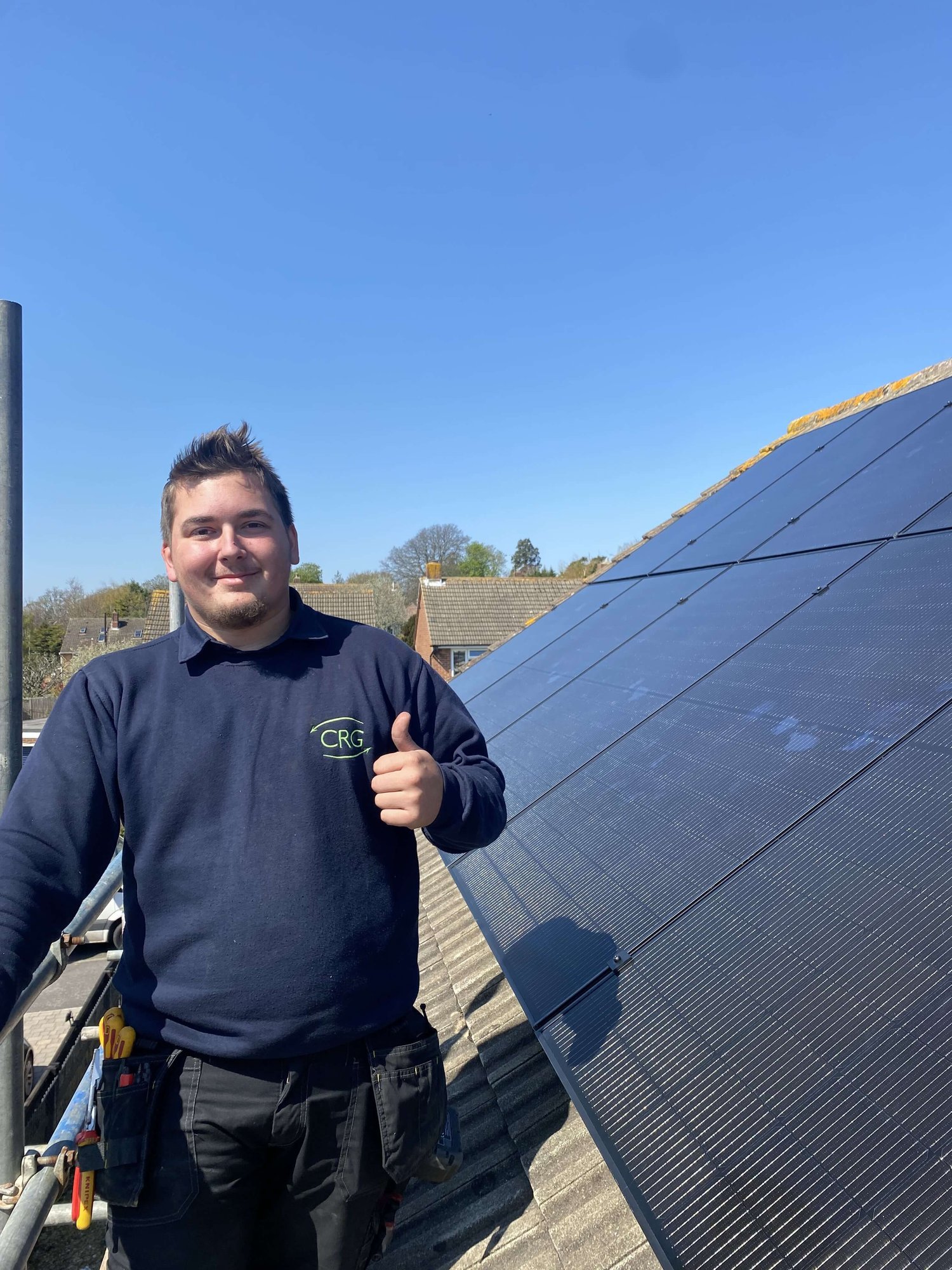

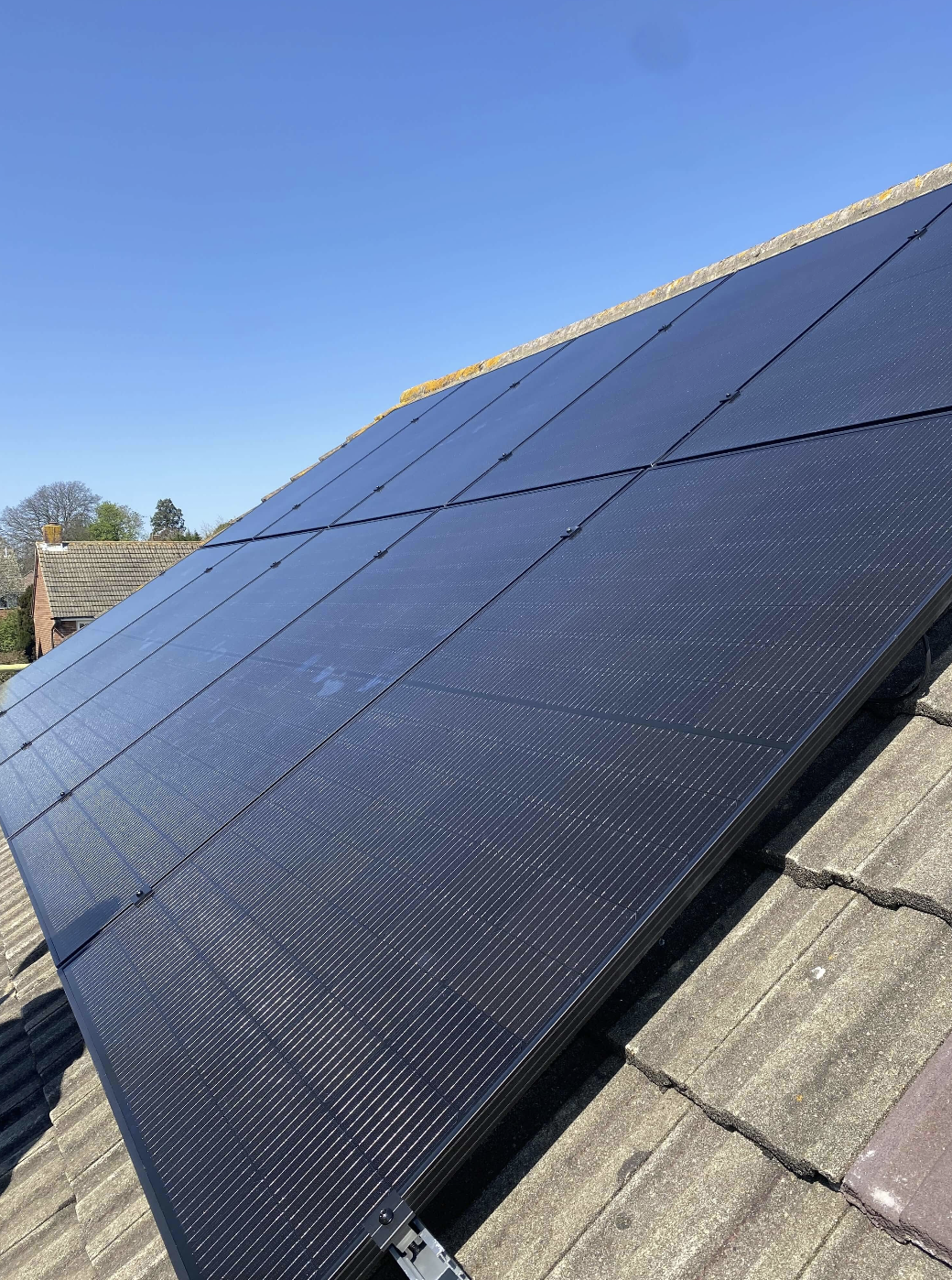
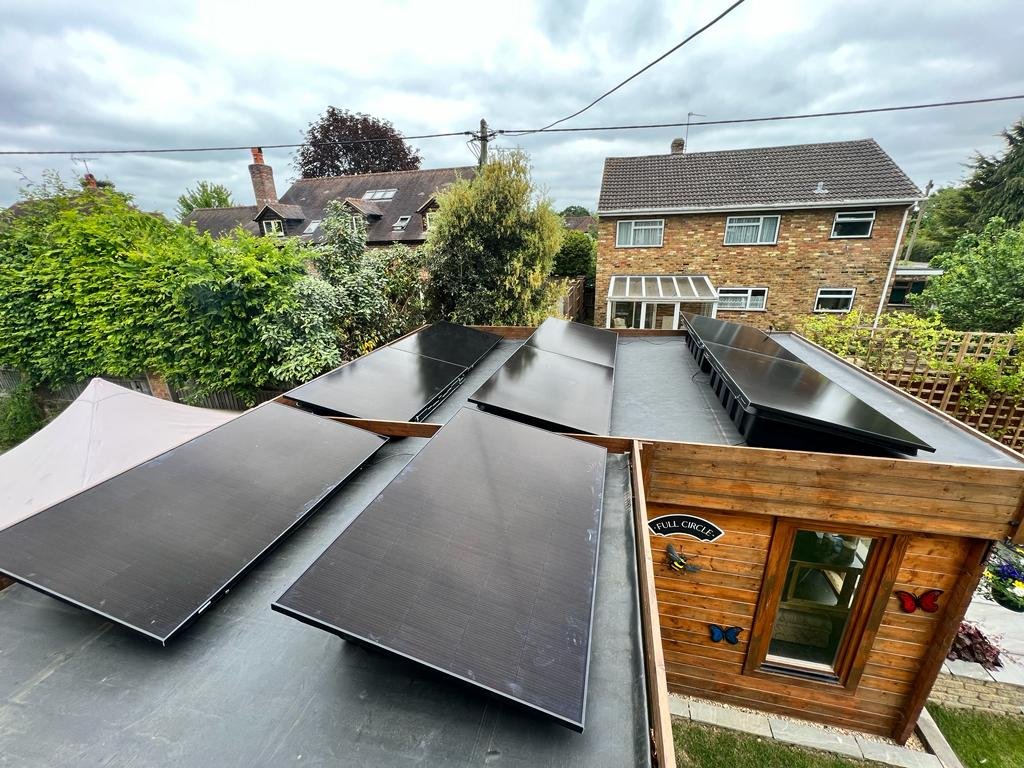
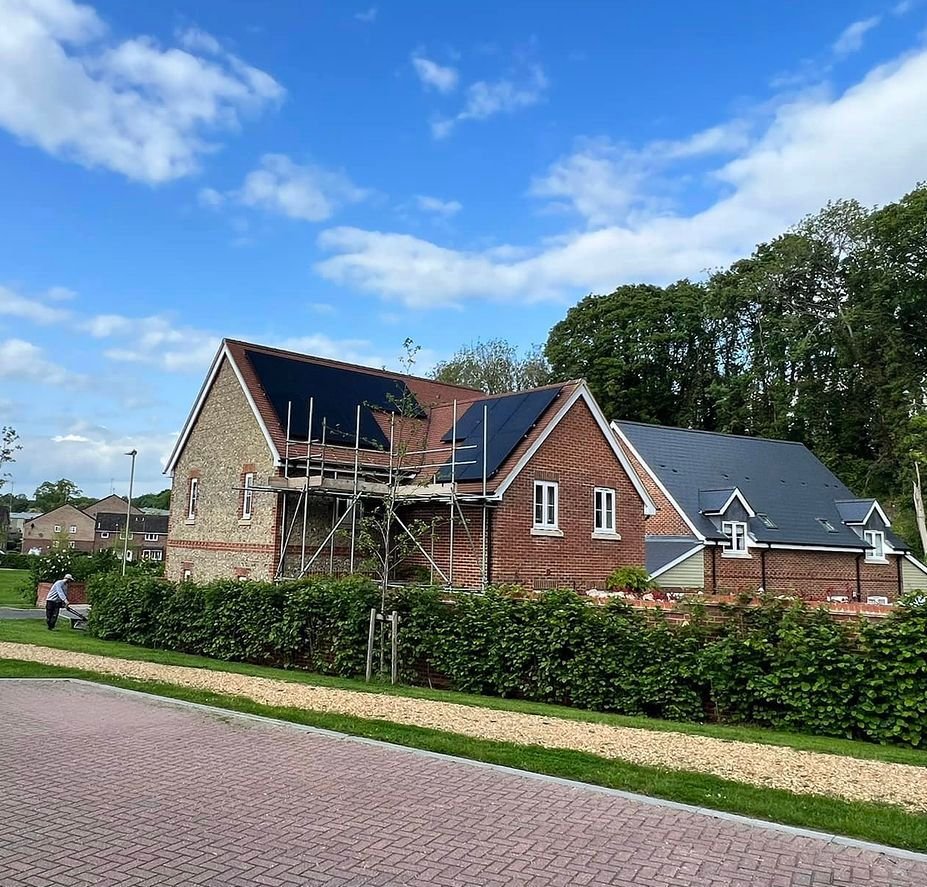
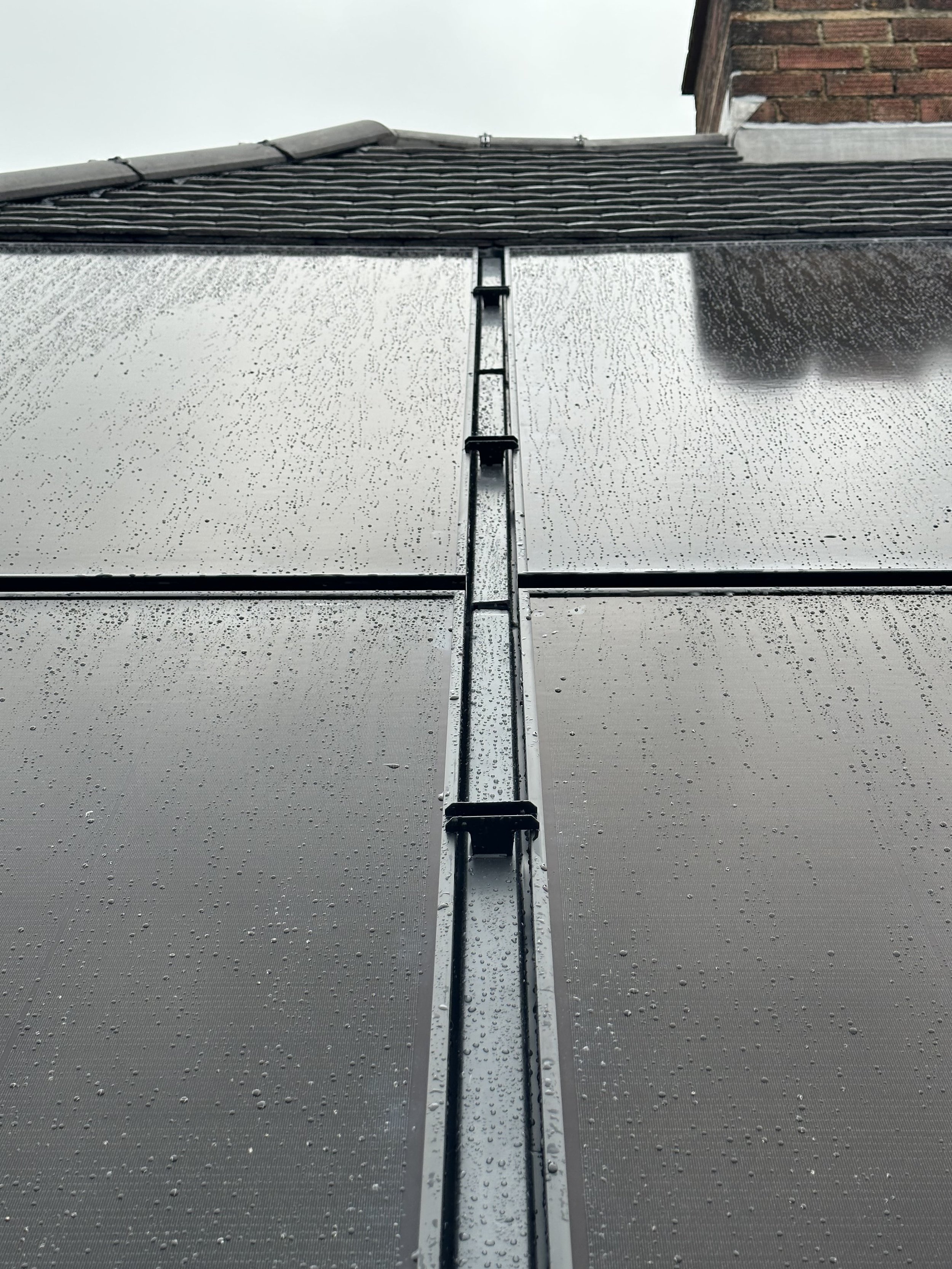
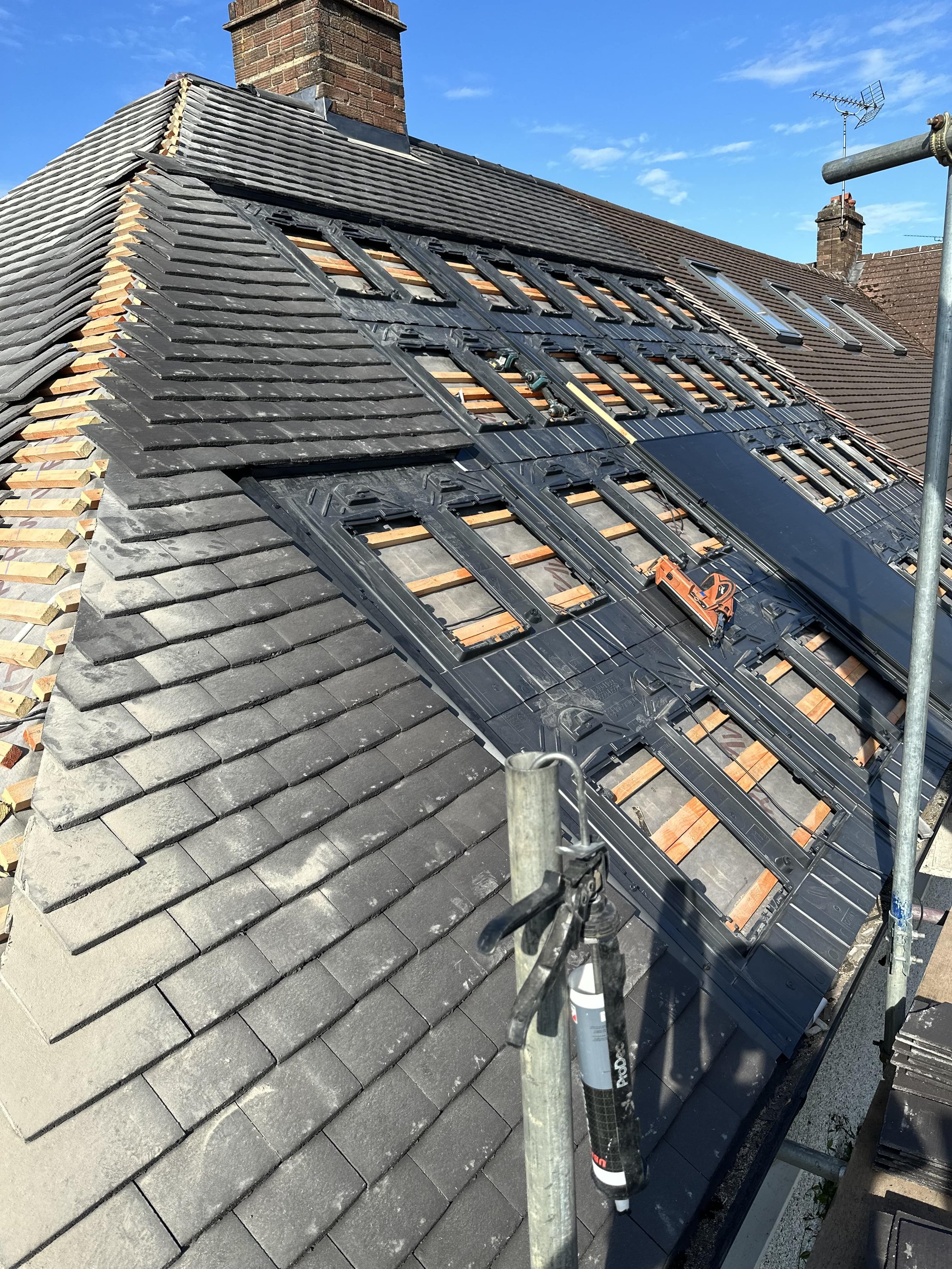
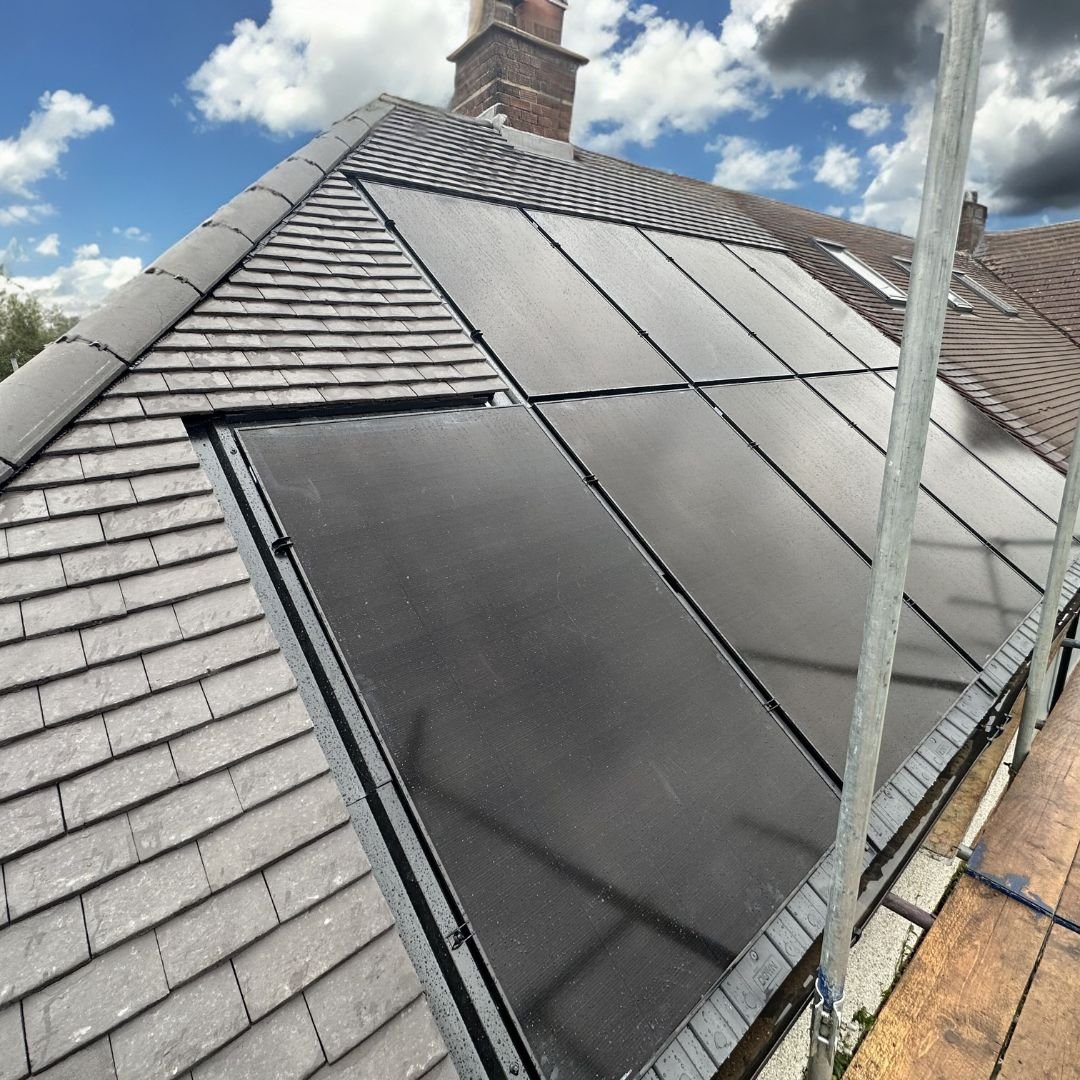
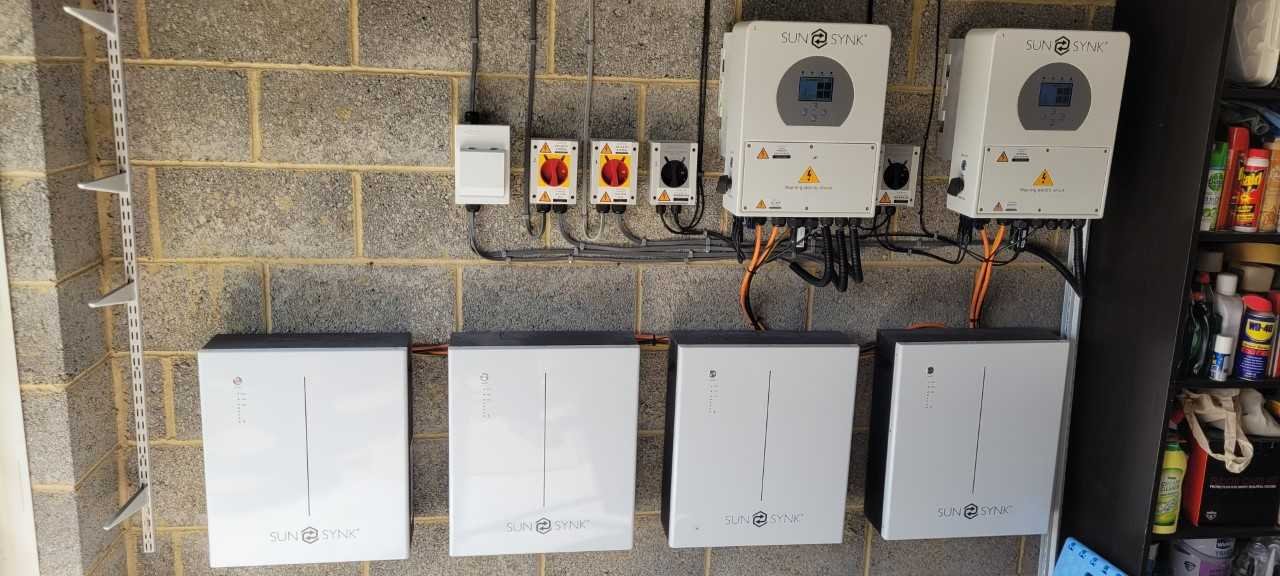
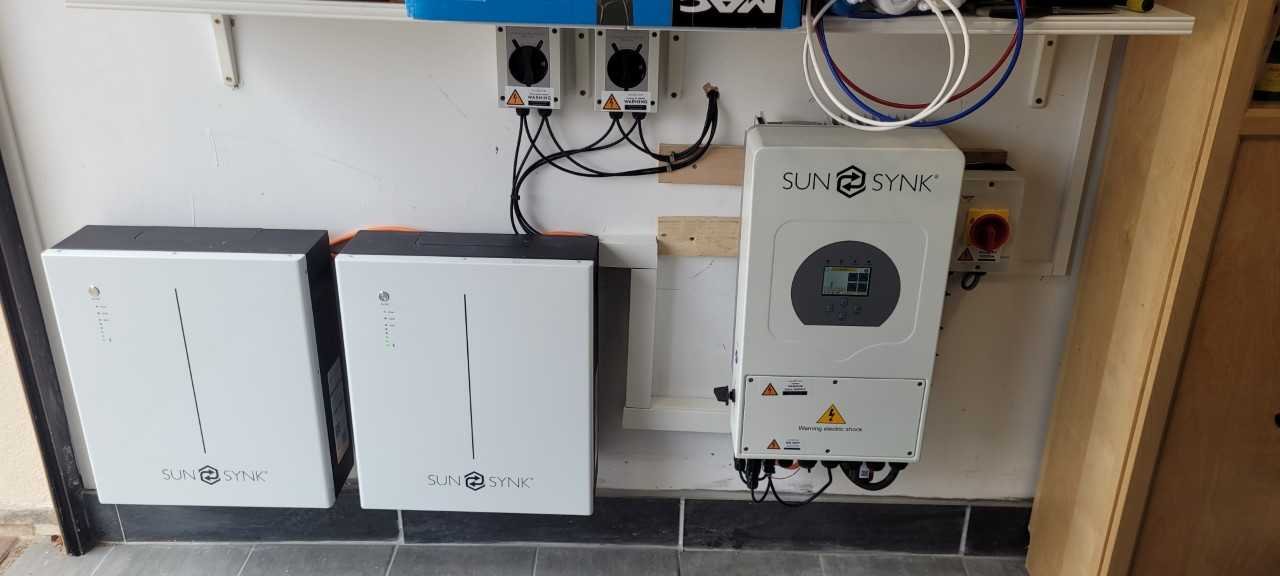
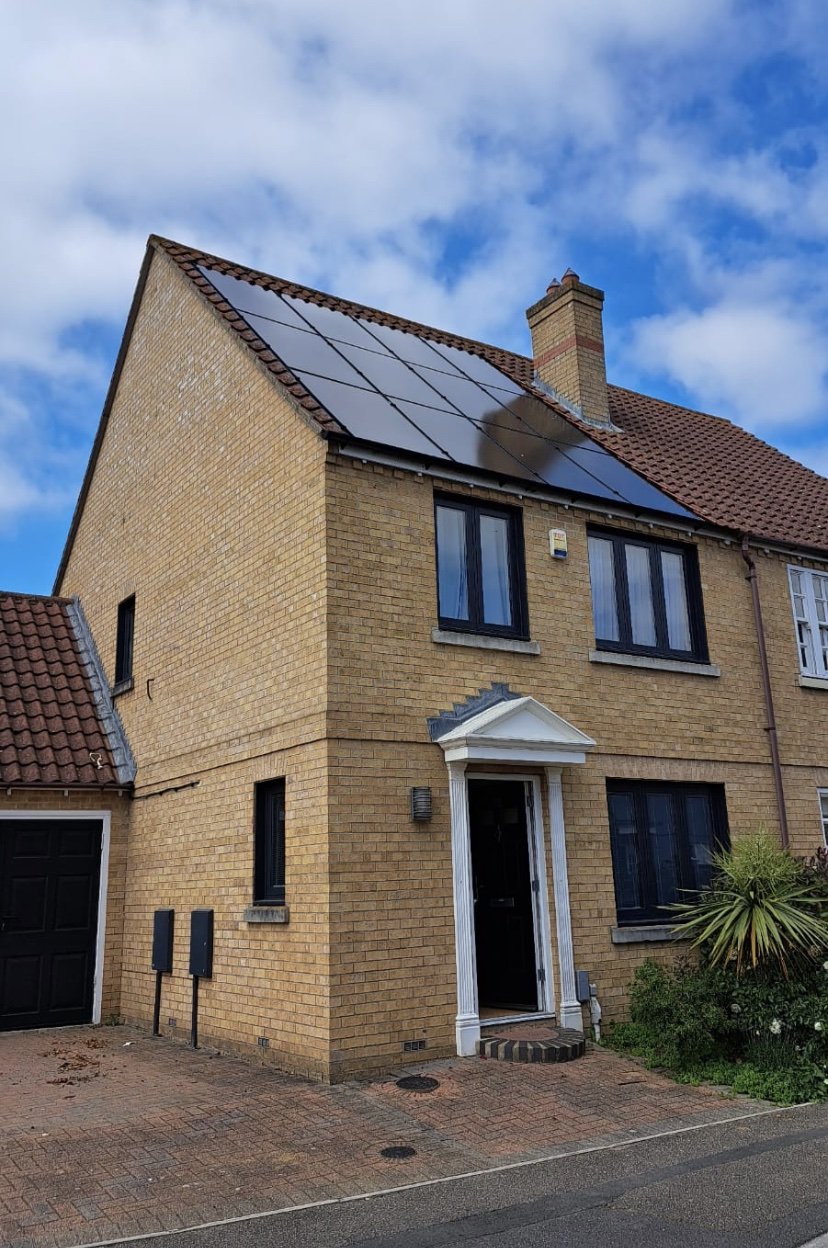
Solar Panel Installation and FAQ’s
Getting Started with Solar Panels
Dive into the world of solar panel installation with insights into flat roof setups, possible energy savings, how it works, panel options, and more.
Solar Panel Installation and Types
Discover how to participate in the SEG scheme and navigate planning permissions in the UK while exploring the essential concept of DNO approval for a seamless solar panel experience.
Find the best system size for your needs ☀️
Reliable Solar & Battery Services for Your Home
With CRG, you can be sure you’re getting the best results at a cost-effective price. Our highly-rated commercial solar installation services include the following:
Learn more about how our experienced solar energy professionals can help you — simply request a free quote online or call us on 0333 253 3531 today.
Read our great reviews.
From quote to after care we found CRG professional… From start to finish we found CRG helpful, professional and the workmanship excellent.



